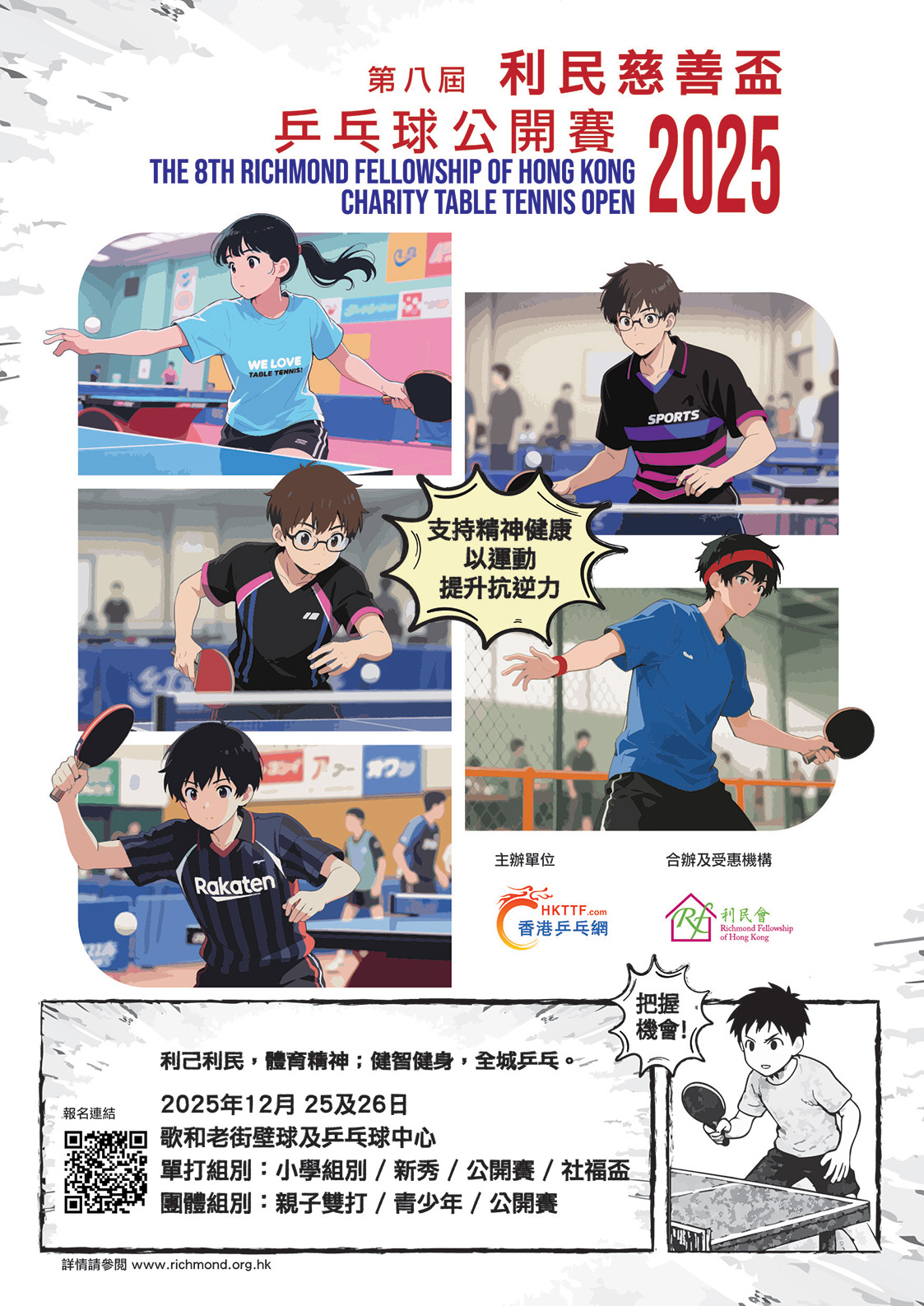社區對復元公民和精神健康的知識和態度:焦點小組
背景及簡介
在2021年1月利民會進行了一項關於復元公民和精神健康的知識與態度的電話問卷調查(Rowe 1999; Wong et al, 2023)。部分問卷調查的參加者亦對焦點小組討論感興趣,因此再被邀請深入探討他們對社區共融和復元公民的看法。
研究時期:2021年4月
目標人群:年滿18歲的香港居民,能夠用廣東話溝通,並已完成電話調查。
目的
- 以焦點小組訪談研究方式,探討對復元公民、5R(即權利、責任、角色、資源和關係)和社區共融的看法和觀點。
- 識別障礙並探究在社區中推廣復元公民的方法。
方法
邀請在電話調查中表示有興趣參加焦點小組討論的受訪者。討論內容被錄音以進行主題分析。
以半結構化訪談模式,討論以下內容:
(1) 與復元人士相處的經驗;
(2) 對復元人士社會共融的看法;
(3) 對復元公民的認識和看法,以及對復元人士擁有權利、責任、角色、資源和關係的看法(包括:益處和擔憂);
(4) 推廣復元公民概念
結果
- 共有21位參加者分三組參加焦點小組討論。
- 大多數參加者表示,復元人士與社區其他人無分別,但有些人對復元人士的不可預測行為和反應感到擔憂,並不知道如何與他們溝通和互動,尤其是那些從未接觸過復元人士的。
- 參加者普遍認為,社會共融可以促進康復,但前提是他們的精神疾病是穩定的。
- 需要資源來促進社會共融和接受復元人士擁有5R,例如開發更多職業康復培訓中心,創造更多合適的工作和開展醫務及社會康復計劃。然而,也必須考慮到其他人的安全。
- 大多數參加者對復元公民的基本概念並不熟悉,但普遍表示支持。少數人認為復元公民能支持復元人士擁有與其他人相同的權利。
- 資源和跟進不足、未能持續的醫療護理、公眾普遍對精神疾病知識的缺乏,以及與他人在建立網絡時遇到困難,這些都是阻礙康復和擁有5R的主要障礙。
- 建議提供足夠和適當的資源、教育和宣傳,持續支援以跟進復元人士的精神狀況,並定期檢討精神健康政策,以滿足復元人士及其照顧者的需求,以促進復元公民。
結論
焦點小組參加者普遍支持復元公民和5R,但也發現了一些障礙。建議增加社區精神健康教育和醫療保健以及對復元人士和照顧者的社會支持,以促進復元公民的推廣,並為社區復元創造包容性的環境。
參考文獻
Rowe, M. (1999). Crossing the border: Encounters between homeless people and outreach workers. University of California Press, Berkeley.
Wong, F.Y.Y., Wong, K.K.L., Lam, P.C.W., Chin, L.Y. and Fung, C.T. (2023). Community knowledge and attitudes toward recovering citizenship and mental illness: a telephone survey approach. Journal of Public Mental Health, Vol. 22 No. 3, pp. 133-145. https://doi.org/10.1108/JPMH-08-2022-0086
背景及簡介
在2021年1月利民會進行了一項關於復元公民和精神健康的知識與態度的電話問卷調查(Rowe 1999; Wong et al, 2023)。部分問卷調查的參加者亦對焦點小組討論感興趣,因此再被邀請深入探討他們對社區共融和復元公民的看法。
研究時期:2021年4月
目標人群:年滿18歲的香港居民,能夠用廣東話溝通,並已完成電話調查。
目的
- 以焦點小組訪談研究方式,探討對復元公民、5R(即權利、責任、角色、資源和關係)和社區共融的看法和觀點。
- 識別障礙並探究在社區中推廣復元公民的方法。
方法
邀請在電話調查中表示有興趣參加焦點小組討論的受訪者。討論內容被錄音以進行主題分析。
以半結構化訪談模式,討論以下內容:
(1) 與復元人士相處的經驗;
(2) 對復元人士社會共融的看法;
(3) 對復元公民的認識和看法,以及對復元人士擁有權利、責任、角色、資源和關係的看法(包括:益處和擔憂);
(4) 推廣復元公民概念
結果
- 共有21位參加者分三組參加焦點小組討論。
- 大多數參加者表示,復元人士與社區其他人無分別,但有些人對復元人士的不可預測行為和反應感到擔憂,並不知道如何與他們溝通和互動,尤其是那些從未接觸過復元人士的。
- 參加者普遍認為,社會共融可以促進康復,但前提是他們的精神疾病是穩定的。
- 需要資源來促進社會共融和接受復元人士擁有5R,例如開發更多職業康復培訓中心,創造更多合適的工作和開展醫務及社會康復計劃。然而,也必須考慮到其他人的安全。
- 大多數參加者對復元公民的基本概念並不熟悉,但普遍表示支持。少數人認為復元公民能支持復元人士擁有與其他人相同的權利。
- 資源和跟進不足、未能持續的醫療護理、公眾普遍對精神疾病知識的缺乏,以及與他人在建立網絡時遇到困難,這些都是阻礙康復和擁有5R的主要障礙。
- 建議提供足夠和適當的資源、教育和宣傳,持續支援以跟進復元人士的精神狀況,並定期檢討精神健康政策,以滿足復元人士及其照顧者的需求,以促進復元公民。
結論
焦點小組參加者普遍支持復元公民和5R,但也發現了一些障礙。建議增加社區精神健康教育和醫療保健以及對復元人士和照顧者的社會支持,以促進復元公民的推廣,並為社區復元創造包容性的環境。
參考文獻
Rowe, M. (1999). Crossing the border: Encounters between homeless people and outreach workers. University of California Press, Berkeley.
Wong, F.Y.Y., Wong, K.K.L., Lam, P.C.W., Chin, L.Y. and Fung, C.T. (2023). Community knowledge and attitudes toward recovering citizenship and mental illness: a telephone survey approach. Journal of Public Mental Health, Vol. 22 No. 3, pp. 133-145. https://doi.org/10.1108/JPMH-08-2022-0086





